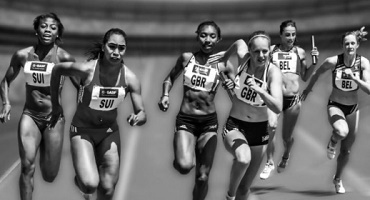What is power?
We explain what power is and what are the three powers in the political sphere. In addition, the types of powers that exist.
-
What is power?
The power, of the Latin poser , refers to the capacity, the faculty or ability to carry out a certain action . By extension, it has also been used to have the conditions to do so, among which are material availability, time or physical location.
The word power refers, in its most common use, to the authority that one or more persons have to carry out the task or work, specify something they want or impose a mandate. It may come from the first definition, insofar as the two indicate the faculty and the capacity in the execution of something, but in this use it is limited to the acts in which people grant that faculty to others.
It is precisely in the legal field that the written document of a legal nature is empowered with which a person grants another person the power to perform actions in his place (when he is unable due to illness or distance, for example).
In politics , power was always recognized as the guiding and coercive power of the State , although it can be better understood as the authority that governs the destinies of a nation . In most democratic republics, this authority is composed of the so-called three powers:
- Executive power . With the President and the ministers who execute the government action.
- Legislature . With the legislators (congressmen, parliamentarians, deputies) who strongly sanction the laws and regulations that will be valid.
- Judiciary . With the judges who determine and punish those who do not respect those laws.
Various social sciences have studied the characteristics that power has in the organization of societies , standing out as a pioneer Max Weber, at the end of the 19th century. For him, power is the imposition of his own will within a social relationship and despite any possible resistance. He understood the power linked to the idea of domination mobilized for some purpose.
That domination is achieved through legality , established morality and also the charisma or the apparent exemplarity of who is getting it. Thus, Weber says that relationships of different types are established, which includes economic, education and religion .
From the studies many concepts emerged that accompany that first notion:
- Absolute power. It is the excessive exercise and not determined by any law.
- Limited power. It is the one that must be adjusted to respect some higher order.
- Spiritual potential. It is the one that corresponds to an authority of a religious institution.
- Factual potential. with this idea it refers to the capacities of pressure and influence over the other powers and over the common people who have certain groups, parallel to the State. In some countries, they are called in the current use fourth power to the press, and fifth power to the Church.
- Purchasing potential . In the economic field, it is understood as the rental capacity that is had to acquire certain goods and services .
- Economic potential. It has to do with the social nuance of the concept, and refers to the set of relationships that are established between people with regard to the production, distribution and consumption of those goods and services.



